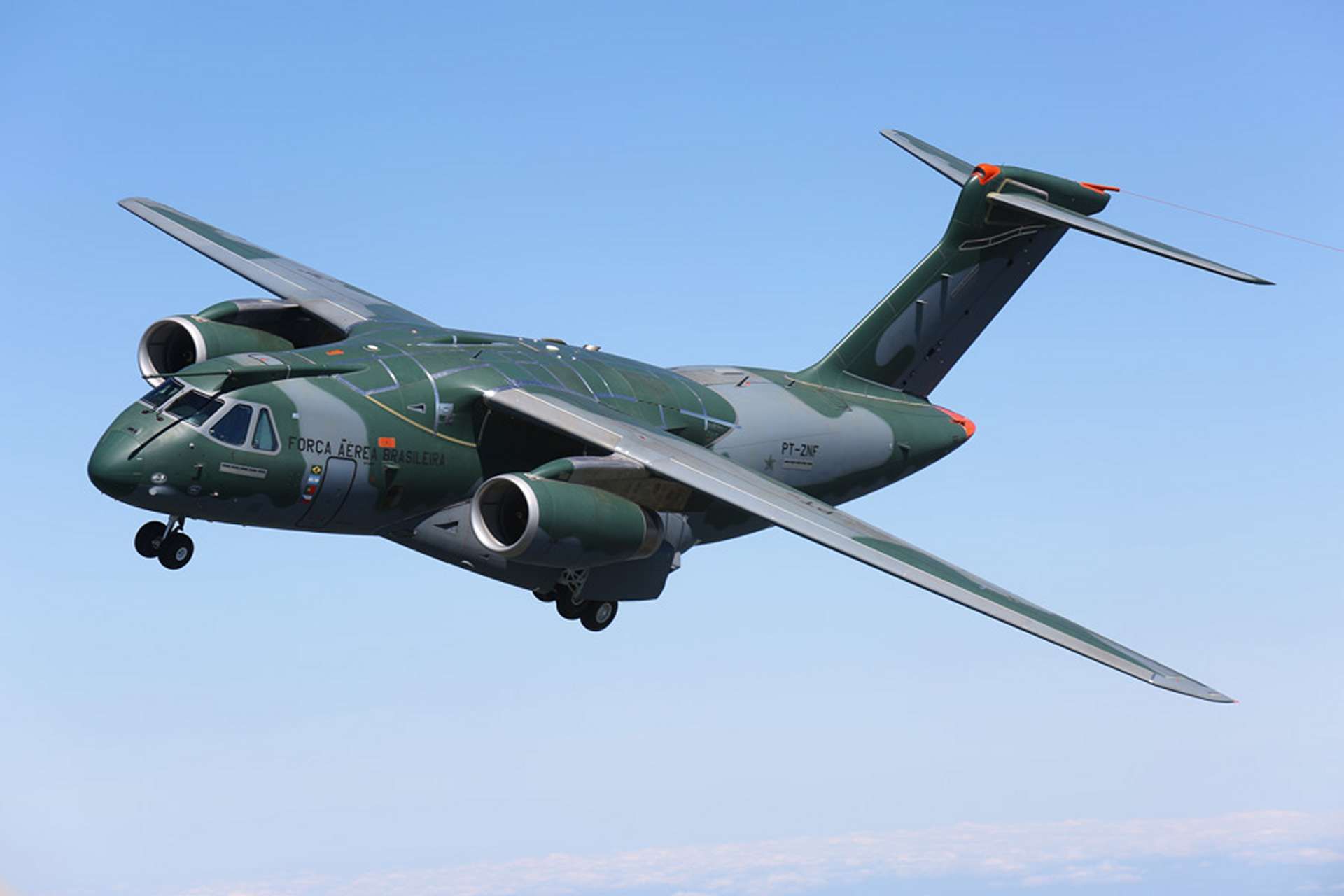Breaking News
Embraer Signs MOU with Arab Organization to Enter Egyptian Market with KC-390 Millennium Military Transport Aircraft.
Brazilian aerospace giant Embraer is making a strategic push into Egypt, seeking to position its KC-390 Millennium military transport aircraft as a superior alternative to Lockheed Martin’s famed C-130. This move follows a recent industrial cooperation agreement between Egypt and Brazil, aimed at strengthening bilateral ties and fostering technology transfers between the two nations.
Follow Army Recognition on Google News at this link

Embraer KC-390 Millennium Military Transport Aircraft (Picture source: Embraer)
From May 20 to 22 2024, a Brazilian delegation of government leaders and businessmen was warmly received by their Egyptian counterparts. A crucial memorandum of understanding was signed between Brasilia and the Arab Organization for Industrialization (AOI), boosting prospects for future collaborations, particularly in the defense sector. Observers see this development as a major turning point, with the Arab-Brazilian Chamber of Commerce (ABCC) playing a facilitating role.
The visit coincides with Embraer's attempts to disrupt an existing agreement between the United States and Egypt for the purchase of twelve C-130s, a deal valued at $2.2 billion that has faced criticism over human rights concerns in Egypt raised by U.S. Senator Rand Paul.
Embraer’s KC-390, already in service with the Brazilian, South Korean, and Portuguese air forces, stands out for its superior payload capacity, capable of carrying over 20 tons. With capabilities such as medical evacuation, search and rescue, and the ability to operate on unpaved runways, the KC-390 could be a valuable addition to the EAF fleet.
The meeting between Marcos Degaut, Brazil's Secretary of Defense Products, and Abdel Moneim Al-Terras, head of the AOI, underscored the serious intentions of both sides to push this partnership to new heights, including Egyptian requests for Rolls Royce AE-2100D turboprop engines.
The KC-390 presents itself as a versatile aircraft, capable of meeting a range of tactical transport and logistical missions, while promising reduced operating costs — a compelling argument for air forces looking to modernize or expand their fleet efficiently.
The growing interest in the KC-390 is also illustrated by the recent inclusion of Egypt in Embraer’s promotional brochure for the C-390 Millennium, which highlights the enhanced mobility the transporter can offer. Moreover, the planned integration of a Saab avionics suite increases the aircraft’s appeal to the EAF by providing cutting-edge navigation and mission management technology.
With successful demonstrations not only in Egypt but also in Nigeria and South Africa, Embraer appears poised to expand its footprint on the African continent, promising to redefine the standards of modern military air mobility. The coming months could well mark a decisive turning point in the fierce competition for the medium military transport market.
The Embraer KC-390, also known as the C-390 Millennium, is a versatile aircraft designed by the Brazilian manufacturer Embraer. It was first showcased in 2018 at the Farnborough Airshow. This aircraft is primarily used for military transport and can also serve as a refueling plane. It requires a crew of two and made its first flight on February 3, 2015, officially entering service on September 3, 2019, although it was initially planned to be launched in 2016.
The KC-390 is a robust and spacious aircraft, measuring 33.91 meters in length, with a wingspan of 35.05 meters, and a height of 10.26 meters. Its maximum takeoff weight is 72 tons, and it can carry up to 23.6 tons of cargo. The aircraft is powered by two IAE V2500 turbofan engines, each providing a thrust of 138 kilonewtons, allowing for a maximum cruising speed of 850 km/h (Mach 0.8). It can travel a distance of 2,780 km with a full load and up to 6,200 km when empty. The KC-390 can reach a flight ceiling of 11,000 meters, making it suitable for a wide range of military and humanitarian missions.


























